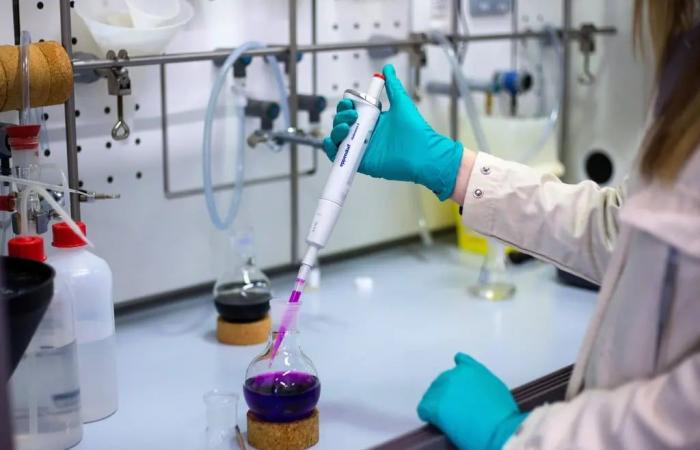
Bloomberg — After defying the biggest operating contraction in ten years, Big Pharma is stopping pursuing public companies to focus on smaller private objectives.
Drugmakers, such as Bristol Myers Squibb Co. (BMY) and Abbvie Inc. (ABBV), invested heavily in targets during the final months of 2023, often paying hefty premiums in an effort to refresh their aging portfolios with blockbuster drugs. .
Private agreements lead M&A in a pharmaceutical sector with little availabilityBiotechnology trading cools after a good run.(Bloomberg)
However, the good progress has cooled this year, with a year-on-year decline of the value of biotechnology transactions by more than 40%, to around US$40 billion, while M&A (mergers and acquisitions) in other sectors are picking up, as shown by various data compiled by Bloomberg.
Read more: New weight loss injection costs 85% less than Big Pharma competition
Health sector operations managers and executives point out that the flood of transactions worth more than US$50 billion that took place in the last quarter of 2023 temporarily eliminated numerous obvious targets, That is, companies with drugs about to hit the market and with short-term income potential.
“We are going through a period of digestion,” he said. Chris Roop, head of mergers and acquisitions for the Americas at Jefferies Financial Group Inc, on the sidelines of the bank’s global healthcare conference in New York last week. “Many of the low-risk companies that would be targets have come off the board.”
Big Pharma they still need to shop to find innovative treatments and replenish business lines. Bloomberg Intelligence analysts Michael Shah and John Murphy recently estimated that the big names in the industry in the US have US$180 billion in annual sales that are at risk due to patent expirations between now and 2030.
With fewer obvious public goals to pursue, a trend that has emerged this year in the negotiation of healthcare agreements has been the search for smaller private companies. Pharmaceutical acquisitions of private biotechs have increased 198% so far this year, according to data compiled by Bloomberg.
Last month, Merck & Co. (MRK) agreed to buy Eyebiotech Ltd. for $1.3 billion up front to replenish its arsenal of ophthalmic treatments; Biogen Inc. (BIIB) said it would pay up to US$1.15 billion in advance by Human Immunology Biosciences Inc. to strengthen its portfolio of immunological disease treatments; and Johnson & Johnson (JNJ) closed an $850 million deal for Proteologix Inc. that will give it access to a potential new drug against atopic dermatitis.
New generation
With initial public offerings still recovering from a two-year hiatus, and amid a choppy market for biotech stocks, a new generation of companies have been left at the doorstep of developing new drugs in private markets. These companies have caught the attention of Big Pharma, even though their revenue-generating potential lies further down the road.
Read more: 76% of the growth in the Venezuelan pharmaceutical market is contributed by national generics
“I suspect some of the companies that have made some of these private deals have thought ‘this is a good time for us to hunt on those lands,’” he said. Matt Gline, CEO of Roivant Sciences Ltd., which sold an asset to Roche Holding AG last year for $7.1 billion. “The premiums are different, the needs are different, the opportunity is different.”
To be sure, companies like Bristol Myers, Abbvie, and Pfizer (PFE) may be taking a break from large-scale M&A after each spent at least US$15 billion in acquisitions last year.
The CEO of Pfizer, Albert Bourla stated Monday that the company is pausing large acquisitions following its landmark purchase of Seagen Inc. in 2023.
Still, trading officials predict a rebound in public trading will soon occur.
Read more: Anti-obesity drug market to grow to $130 billion by 2030: Goldman experts
“Big pharma still has the same challenges and the only way they can solve them is through business development (BD) and mergers and acquisitions,” said Jefferies’ Roop. “I feel optimistic that we will continue to see deal flow.”
J&J is a drug maker that probably be prepared to participate in any rally, according to Nauman Shahglobal head of business development for its pharmaceutical segment.
“We certainly still have the financial capacity and the power to be able to do deals regardless of their size,” he said in an interview at the BIO International Convention held last week in San Diego. “We’re going to focus more on deals that are in that range of five to let’s call it even $20 billion if they make sense. We are not afraid to reach those levels.”
Read more at Bloomberg.com





